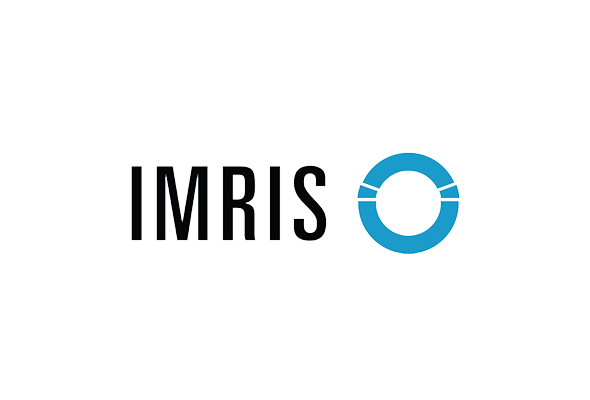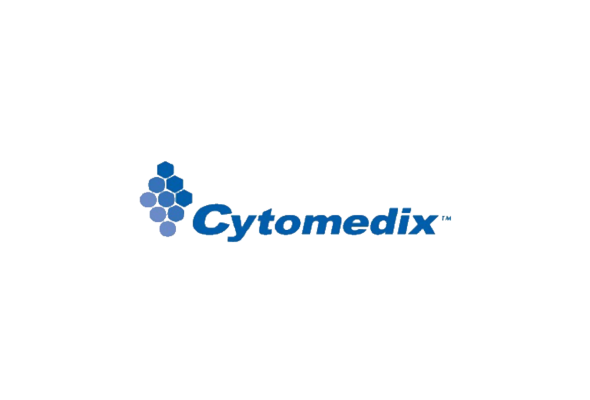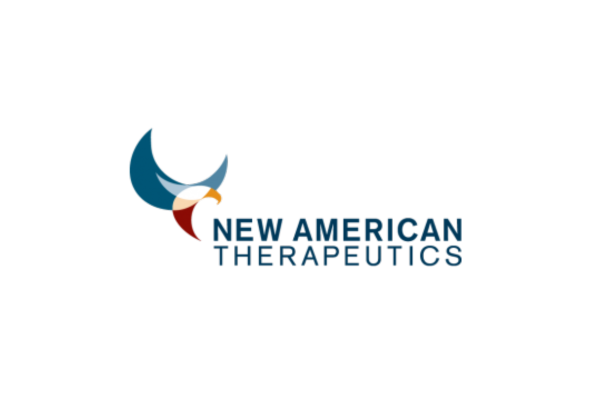The Need to Expand Buprenorphine Prescribing to Treat Opioid Use Disorder
New Report Authored by Deerfield Management Reveals Vast Gender Gap Across Venture-backed Healthcare Companies
“Gender Disparity Among Venture-backed Healthcare Companies and Their Investor Base” finds that less than 1 in 8 board roles at privately backed healthcare companies are held by women. One of Deerfield’s initiatives to increase diversity in healthcare, this study aims to hold healthcare companies and investors accountable and encourage female representation.
(NEW YORK CITY, NY, April 6, 2021) – Deerfield Management Company (Deerfield), a healthcare investment management firm focused on advancing healthcare through investment, information and philanthropy, today released “Gender Disparity Among Venture-backed Healthcare Companies and Their Investor Base,” a paper that analyzes the gender composition of healthcare companies’ corporate boards, as well as that of the investment teams finding, diligencing and mentoring these companies.
In an analysis of 140 healthcare companies that had raised substantial venture financing and published the identity of their board members on their corporate website, Deerfield found that:
● 48.5% of companies had no female board members.
● Women make up about 10% of board director roles in venture-backed healthcare companies.
● Among the most active investment firms in the healthcare space, only about 20% of investment professionals are female.
● Of the six organizations analyzed that have 50% or more female board membership, all but one are helmed by female CEOs.
The paper’s authors, Christine Livoti, Director at the Deerfield Institute at Deerfield and Leslie Henshaw, Partner on the Healthcare Services team at Deerfield, set out to understand the gender composition of venture-backed healthcare companies that operate in the industry subsectors in which Deerfield invests.
Most of the research on diversity in leadership focuses on public companies that are required to report their diversity data. As such, information on private healthcare companies’ board composition is largely unavailable to the public. Livoti and Henshaw established a proprietary database of healthcare companies in the therapeutics, medical devices and diagnostics, healthcare information technology and healthcare services subsectors to identify the gender composition of their corporate boards.
The paper also examines the gender composition of the top 50 healthcare investors, based on the number of healthcare transactions in which they participated. Overall, women make up only about 20% of the investment professionals in this group of firms, and even this modest percentage likely overestimates the proportion of senior female investment professionals relative to their junior counterparts.
“Deerfield sits at the intersection of healthcare and investing, two spheres in which women are vastly underrepresented,” said Leslie Henshaw, Partner at Deerfield and co-author of the paper. “The findings of our report are unsurprising, but still deeply disappointing. With this research, our goal is to help our peers understand the considerable gender imbalance on their own teams is having a direct impact on the board composition of the companies they fund, increasing the imperative to seek out diverse independent board members. We are committed to elevating female and marginalized leaders across the healthcare ecosystem, increasing equity and accessibility throughout an industry in which the role of women – as caregivers, decision makers and patients – is so pronounced.”
Given the outsized role that investors play in board seat allocation and placement, the gender diversity of investment firms cannot be ignored in the context of gender diversity of private company boards.
“While gender composition of public companies, or even a broader swath of private companies agnostic of sector has been examined before, uniquely we examined the gender composition of private healthcare companies’ leadership and their investors,” said Christine Livoti, Director at The Deerfield Institute and co-author of the study. “We hope these findings will serve as a wakeup call for private companies in our industry to examine the gender composition of their leadership and work harder to diversify and grow more equitably across all levels of their organizations.”
The paper’s findings aim to hold companies and investors accountable, encourage greater female representation and advance initiatives for investors to diversify the portfolio companies in which they invest.
“Gender Disparity Among Venture-backed Healthcare Companies and Their Investor Base” is one of Deerfield’s several initiatives to improve representation in the healthcare ecosystem. Deerfield oversees Break into the Boardroom, a program that was launched in 2016 to help promote greater representation of female healthcare executives on boards within the public, private, and non-profit sectors. Break into the Boardroom provides senior female healthcare executives with training and guidance intended to help them obtain their first board role.
In the coming months, a programmatic effort will take place at the Cure, a 12-story vertical innovations campus in New York City, to dive deeper on this topic.
“We see significant value in the medtech industry and are excited to extend our investment in medtech with this newly formed partnership. Coridea’s track record makes its team an ideal partner to innovate, evaluate, and foster new ideas from concept to commercial enterprise,” stated Steve Hochberg, Partner at Deerfield. “As a New York-based firm, we are proud to partner with the team from Coridea as it brings innovative ideas and enterprise-building capabilities into the Cure ecosystem. This will serve to further establish the Northeast region and New York City as a center for healthcare innovation.”
Formed by proven industry leaders, the incubator will provide its companies with discipline and expertise in a collaborative ecosystem. Grounded by years of industry experience, the team will be able to efficiently move projects through key early-stage milestones including needs assessment, concept generation, rapid prototyping, and pre-clinical and clinical evaluation. Deerfield Catalyst will source new projects and companies through internal ideation and external collaboration with academic or individual partners.
“For sustainable commercial success, innovation must address a clear clinical need, whether it be streamlining a procedure to reduce cost or developing a novel intervention to treat more patients. At Deerfield Catalyst we plan to use agile best practices to efficiently advance promising clinical ideas and companies through the development lifecycle,” commented Howard Levin, M.D., CEO of Coridea and Chief Executive of Deerfield Catalyst. “We see a bright future ahead and are excited to become a critical part of the Cure healthcare ecosystem.”
The partnership aims to launch 10 new companies over the next five years. Structured to support company formation and growth, the incubator includes funding for operating expenses, early idea generation, and project and company evaluation. The medtech incubator hub and newly formed companies will be housed in the Cure building at 345 Park Avenue South in Manhattan.
ABOUT BREAK INTO THE BOARDROOM
Break into the Boardroom aims to promote greater representation of female healthcare executives on boards within the public, private, and non-profit sectors. Break into the Boardroom was founded by Deerfield and Oxeon based on a shared belief that their organizations are uniquely positioned not only to cultivate new female board candidates but also to connect these women with concrete governance opportunities. Deerfield and Oxeon focus on identifying talent, cultivating companies, and deploying capital within the healthcare ecosystem. For more information, please visit breakintotheboardroom.org.
Deerfield is an investment management firm committed to advancing healthcare through investment, information and philanthropy. For more information, please visit www.deerfield.com
CONTACT
BerlinRosen

Shine and Deerfield Close $150 Million Financing Commitment to Support Diagnostic and Therapeutic Medical Isotope Manufacturing
New York, NY and Janesville, WI – SHINE Medical Technologies Inc. (SHINE), a Wisconsin-based company dedicated to being the world leader in the safe, clean, affordable production of medical isotopes, and Deerfield Management Company, a healthcare investment firm, announced today the closing of a definitive agreement providing a $150 million financing commitment to support diagnostic and therapeutic medical isotope manufacturing. The Company’s first product, molybdenum-99 (Mo-99), will address current chronic shortages of the isotope, which is currently relied on for 80% of all nuclear medicine procedures.
“We are enthusiastic about partnering with SHINE to help create a permanent and dependable solution to the industry’s Mo-99 shortage and to work on developing other medical isotopes for therapeutic use,” said Steve Hochberg, Partner at Deerfield. “We look forward to continuing to work with the talented SHINE team and supporting them as the company scales and executes to address this important need.”
Deerfield’s investment will be used for the construction of SHINE’s main production facility, which will start in the spring of 2019. The investment is tranched, based on SHINE achieving milestones. At full capacity, the SHINE facility will be able to supply over one third of global demand for Mo-99. The investment will also provide capital to ramp up operations prior to commencing commercial production of Mo-99, expected to begin in 2021.
“We are excited to sign this deal as we begin construction of our Janesville production facility,” said Greg Piefer, SHINE founder and CEO. “Deerfield is a world-leading healthcare investment firm and is a strong partner that provides important institutional validation of our business.”
Prior to signing the Deerfield agreement, SHINE also closed its Series B funding round, bringing in over $30M of investment through private investors. “The Series B round was largely driven by the support of in-state investors and strategic partners. We are extremely grateful to know that the State of Wisconsin and our industry partners believe in the SHINE vision and opportunity,” said Todd Asmuth, President and CFO of SHINE.
About Medical Isotopes
Medical isotopes are radioisotopes that are used in the diagnosis and treatment of disease. Molybdenum-99 (Mo-99) is a radioisotope that decays into the diagnostic imaging agent technetium-99m (Tc-99m). The workhorse of nuclear medicine, Tc-99m is used in more than 40 million medical imaging procedures each year, primarily in stress tests to diagnose heart disease and bone scans to stage cancer. SHINE was founded to deploy a safe, cost-effective and environmentally friendly technology to produce a variety of medical isotopes, including Mo‑99. Roughly 1% of all Mo-99 in the world decays every hour, meaning it must be continuously produced. Current production is limited to only a handful of government-owned nuclear research reactors, the majority of which are overseas.
About Deerfield Management Company
Deerfield is an investment management firm committed to advancing healthcare through investment, information and philanthropy. For more information about Deerfield, please visit www.deerfield.com.
About SHINE Medical Technologies, Inc.
Founded in 2010, SHINE is a development-stage company working toward becoming a manufacturer of radioisotopes for nuclear medicine. The SHINE system uses a patented, proprietary manufacturing process that offers major advantages over existing and proposed production technologies, as it does not require a nuclear reactor, uses less electricity, generates less waste and is compatible with the nation’s existing supply chain for molybdenum-99. In 2014, SHINE announced the execution of molybdenum-99 supply agreements with GE Healthcare and Lantheus Medical Imaging. In 2015, with the help of Argonne National Laboratory, GE Healthcare demonstrated SHINE molybdenum-99 can act as a drop-in replacement for reactor-based moly-99. In 2016, SHINE received regulatory approval to construct its facility from the Nuclear Regulatory Commission and signed a moly-99 supply agreement with HTA Co., Ltd., the largest Chinese distributor of radiopharmaceuticals. In 2017, SHINE built the first building on its Janesville campus: SHINE Building One. Learn more at http://shinemed.com.
Contact
Karen Heidelberger
Chief Partnership and Communications Officer
Deerfield Management Company
212-551-1600
[email protected]
Katrina Pitas
VP of Business Development
SHINE Medical Technologies
(608) 210-1060
[email protected]
Innovate, Regrow, Cure – The Politics Of Biomedical Innovation
When politics and science mix, we all hold our breath.
Several pieces of legislation have been floated in Congress over the past year with the shared objective of encouraging biomedical research and therapeutics.
These follow in the footsteps of other recent
legislation designed to speed advances in medicine by modernizing regulatory
processes. Even many skeptics of the Washington political process hail some of
these efforts, such as Breakthrough Therapy Designation (BTD) and the Generating
Antibiotics Incentives Now (GAIN) Act, both implemented in connection with
2012’s
Food and Drug Administration Safety and Innovation Act (FDASIA), as great
successes. In 2015 alone, the FDA approved 45 new molecular entities, which
included 10 with BTD and 16 drugs with
novel mechanisms of action. Almost half were drugs for rare diseases[1].
Critical to their success, these initiatives were designed through a collaborative process with buy-in from multiple stakeholders – including FDA, patient groups, and industry.
More recently, H.R.6., known as the 21st Century Cures Act, was overwhelmingly passed by the House in July 2015. Its goal is “to accelerate the discovery, development and delivery of 21st century cures[2].” This legislation grew out of a bipartisan process, championed by Representatives Fred Upton (R, MI) and Diana DeGette (D, CO), that carefully constructed something about as close to a consensus as is possible in Washington today. Patient groups, industry, academia, FDA, NIH and other stakeholders all had a voice in constructing a balanced package of reforms designed to enhance the medical innovation ecosystem.
Following in the footsteps of the House, Senate leaders from both parties are advancing the Senate’s so-called “innovation legislation,” a suite of bills that collectively are that Congressional body’s companion to the House’s 21st Century Cures. Those bills were discussed across three Senate Health Committee meetings in the first half of 2016, with a total of 19 bills approved by the committee as of April 2016[3].
Like FDASIA in 2012, these bills are the product of efforts to build consensus and alignment across stakeholders, including FDA, and they have the potential to further the advances that grew out of FDASIA.
CDER New Molecular Entity (NME) and New Biologic License Application (BLA) Filings and Approvals

At the same time, it is possible to push too far and too fast in trying to speed new therapies to market. Earlier this year, legislation known as the Reliable and Effective Growth for Regenerative Health Options that Improve Wellness (REGROW) Act was introduced into both houses of Congress. REGROW is a bill “to amend the Federal Food, Drug, and Cosmetic Act with respect to cellular therapies[5]” with the aim of supporting regenerative medicines.
A major criticism of REGROW is that it would introduce significant changes that challenge the basic architecture of the new drug approval process. As one example, REGROW would allow for the sale of stem-cell therapies that have been shown to be safe but have not yet been proved effective.
It is perhaps telling that multiple advocacy organizations in the field are opposed to REGROW – these include the Alliance for Regenerative Medicine (ARM), the International Society for Stem Cell Research[6], and most recently, a coalition of 10 patient advocacy groups that wrote a letter to Senator Mark Kirk (R, IL), the bill’s sponsor, expressing their shared concerns[7].
ARM noted “We continue to believe the proposal does not contain critical statutory protections for patients[8],” with the patient advocacy coalition similarly noting patient safety could be compromised with the conditional approval pathway stipulated by REGROW, and further, that it would be difficult for FDA to withdraw such products should it subsequently identify safety issues.
The need for new drugs to demonstrate not only safety but also efficacy has been the cornerstone of FDA regulation since the 1962 Harris-Kefauver Amendments to the Federal Food, Drug, and Cosmetic Act, passed in response to the agency’s experience with thalidomide[9]. Critics, including FDA officials, have expressed concern that REGROW would upend over 50 years of standard practice at the agency.
Most everyone agrees that there is room to continue to optimize the FDA approval process, and that regenerative medicine represents an area of enormous promise. Efforts to enhance FDA regulation, like the 21st Century Cures process, should be welcomed. But any discussion of eliminating the requirement that new drugs be shown to be efficacious prior to FDA approval should be undertaken only with careful thought and buy-in from key stakeholders across the spectrum, including most importantly FDA itself.
Recent history has shown that Washington can act to advance biomedical innovation. But efforts such as REGROW remind us of the dangers of mixing politics with science.
[1]http://cen.acs.org/articles/94/i5/Year-New-Drugs.html
[2]https://www.congress.gov/bill/114th-congress/house-bill/6?q=%7B%22search%22%3A%5B%2221st+century+cures%22%5D%7D&resultIndex=1
[3]http://www.alexander.senate.gov/public/index.cfm/pressreleases?ID=388C8CAC-698E-4CD0-A4C3-6929EFB9F0BD
[4]http://www.fda.gov/Drugs/DevelopmentApprovalProcess/DrugInnovation/ucm474696.htm
[5]https://www.congress.gov/bill/114th-congress/house-bill/4762/text?q=%7B%22search%22%3A%5B%22REGROW%22%5D%7D&resultIndex=1
[6]http://www.politico.com/tipsheets/prescription-pulse/2016/05/new-legislation-on-stem-cells-raises-alarm-214069
[7]http://cdn.rarediseases.org/wordpresscontent/wp-content/uploads/2014/11/Letter_to_Senator_Kirk_REGROW_May_24.pdf
[8]http://alliancerm.org/page/government-relations-and-policy
[9]http://blogs.fda.gov/fdavoice/index.php/2012/02/50-years-after-thalidomide-why-regulation-matters/

Deerfield Leads Series 1-A financing for Hallux
New York, NY – December 16, 2015 – Deerfield leads a $7.1 million Series A investment in Hallux, Inc. to further the development of a novel dosage form and route of administration of leading antifungal terbinafine to treat distal subungual onychomycosis, a common infection of the nail plate. The studies are intended to establish tolerability, proof of concept and optimal dose.
“We are pleased to be able to work with Hallux to pursue improved cure rates for distal subungual onychomycosis, which is reported to affect as many as 35 million people in the United States. We believe the Hallux management team has identified and is developing a novel therapeutic delivery option that can result in meaningfully improved outcomes when treating this disease,” stated Peter Steelman, Partner at Deerfield Management.
“Deerfield has been a creative partner and supporter of innovation and we are pleased to have them on our team to help further develop our product and help guide our company to success,” stated Mark Taylor, CEO of Hallux.
About Hallux
Hallux, Inc. is a clinical-stage pharmaceutical company focused on the development of targeted subungual drugdelivery to treat onychomycosis. The Company’s lead product is designed to deliver high concentrations of terbinafine hydrochloride directly to the nail bed site of infection with negligible systemic exposure.
About Deerfield
Deerfield is an investment management firm committed to advancing healthcare through investment, information and philanthropy.
For more information, please visit www.deerfield.com.
Contacts
Deerfield Management Company
Karen Heidelberger, 212-692-7140
[email protected]

Deerfield Management Announces Partnership with Gregory Sorensen and Deerfield Imaging
New York, New York – October 29, 2015 – Deerfield Management Company, L.P. announces that it has created a partnership with Gregory Sorensen, MD. and Deerfield Imaging (“IMRIS”). Dr. Sorensen will take a significant minority interest in Deerfield Imaging and will become the Executive Chairman.
Dr.Sorensen served until recently as President and CEO of Siemens Healthcare North America, and is a neuroradiologist well known in the industry for his innovative research in medical imaging and for his expertise in clinical practice. Prior to his tenure at Siemens, Sorensen served as Professor of Radiology and Health Sciences & Technology at Harvard Medical School; a faculty member of the Harvard-MIT Division of Health Sciences and Technology; and Co-Director of the A.A. Martinos Center for Biomedical Imaging at Massachusetts General Hospital.
In his role as Executive Chairman of the Company, Sorensen will provide both strategic and operational guidance, drawing on his clinical and business experience in image guided surgery and neuro radiology. “I’m very excited to be part of this partnership,” said Sorensen. “I’m passionate about improving patient care via scientific advances, and IMRIS has a strong record of deep technological innovation that has been shown to improve outcomes. I see great untapped potential in the IMRIS technology and am confident I can help this company unlock that value for the benefit of all stakeholders.”
President and CEO of Deerfield Imaging, Jay D. Miller stated “Dr. Sorensen’s focus on patient outcomes and satisfaction and on product innovation will help take our product development and market leadership to the next level. We are excited to have him join our team.”
Ted Huber, a Partner at Deerfield Management Company and IMRIS Director stated “Dr. Sorensen’s decision to take a leadership role and significant stake in IMRIS validates the potential for the IMRIS technology and we look forward to a strong growth trajectory and continued successful patient care under his leadership and vision.
About Deerfield Imaging and IMRIS Products
As a leader in image guided therapy solutions, IMRIS® products from Deerfield Imaging provide optimized fully integrated image-guided therapy environments that serve to address the important needs of patients, clinicians and hospitals by delivering timely information on surgical targets and results to clinicians for use during surgical or interventional procedures. The VISIUS Surgical Theatre incorporates MRI, CT and angiography into multi-purpose surgical suites to provide advanced intraoperative imaging directly in operating rooms. IMRIS products are sold globally to hospitals in the neurosurgical, spinal cardiovascular, and orthopedic markets. Learn more by visiting www.imris.com.
About Deerfield
Deerfield is an investment management firm committed to advancing healthcare through investment, information and philanthropy.
For more information, please visit www.deerfield.com
Contacts
Deerfield Management Company
Karen Heidelberger, 212-692-7140
[email protected]

Deerfield Management Company Announces a $125 million Term Sheet with SHINE Medical Technologies, Inc.
NEW YORK, October 9, 2014 – Deerfield Management Company announced today it has entered into an agreement providing for up to $125 million of debt and equity financing for SHINE Medical Technologies, Inc. The financing is milestone based with the first funding to occur at the completion of an on-going equity financing which is anticipated to close prior to the year-end 2014. This initial funding will enable the Company to complete its application with the Nuclear Regulatory Commission to begin construction of its novel system to produce Molybdenum 99 (moly-99) on a subcritical basis from low enriched uranium. The moly-99 is further processed into the most common medical isotope used in nuclear medicine.
The U.S. currently does not have domestic moly-99 production capability and must import 100 percent of its supply from foreign producers, most of which use weapons-grade uranium in their production processes. The majority of existing foreign supply will disappear in coming years as the U.S. government ceases to supply highly enriched uranium for such purposes. Shine’s facility will be designed to produce more than twenty-five percent of the world’s demand for moly-99.
“The momentum we’ve gained in just the past year demonstrates that SHINE is positioned to become North America’s preeminent supplier of medical isotopes,” said Greg Piefer, CEO of SHINE. “Deerfield’s reputation in the healthcare industry is unparalleled and I’m thrilled they share SHINE’s vision for a reliable, domestic supply of medical isotopes.”
“We are pleased to help advance and catalyze a solution to the looming US moly99 supply shortage through our support of SHINE. We are encouraged with the progress that the SHINE team has made to date on its novel approach to produce moly99 from Low Enriched Uranium.” said, Steve Hochberg, Partner at Deerfield.
About SHINE Medical Technologies, Inc.
SHINE is a development-stage company working towards becoming a manufacturer of radioisotopes for nuclear medicine. The SHINE system uses a patented proprietary manufacturing process that offers major advantages over existing and proposed production technologies as it does not require a nuclear reactor, uses less electricity, generates less waste and is compatible with the nation’s existing supply chain for moly-99. Learn more at http://shinemed.com.
About Deerfield
Deerfield is an investment management firm committed to advancing healthcare through investment, information and philanthropy. For more information, please visit www.deerfield.com.
Contacts
Deerfield Management Company
Karen Heidelberger, 212-692-7140
[email protected]

Deerfield Invests $27.5mm in OMNIlife science, Inc.
NEW YORK—(BUSINESS WIRE)–Deerfield Management Company announced today that it has entered into a financing agreement with OMNIlife science, Inc. to invest $27.5mm. The purpose of the funding is to strengthen the Company’s balance sheet, to finance the expansion of its total hip and knee replacement product line and to accelerate the commercialization of its proprietary Robotics and Navigation platform, called OMNInav™.
“Deerfield has been an active investor in robotic systems designed to aid in surgical procedures. OMNIlife science has developed a cost-effective computer navigation and robotic platform in orthopedics for improved outcomes of total joint replacement procedures,” stated Steve Hochberg, a Partner at Deerfield Management.
“Deerfield is committed to supporting innovative products and growth companies and has extensive experience with the computer navigation and robotics sector of healthcare, and we welcome them to the OMNI team,” said OMNI’s President and CEO, George Cipolletti. “Given the demographics of the baby boomer generation and the active lifestyle that baby boomer patients intend to maintain, we believe that offering alternative solutions incorporating robotic technology that improve surgical outcomes and reduce rehabilitation times will significantly benefit both patients and the healthcare system.”
About OMNIlife science, Inc.
OMNI is an established hip and knee implant replacement engineering, manufacturing and distribution company that has also developed a proprietary Robotics and Navigation platform, called OMNInav™, that uses proprietary computer-assisted robotic cutting guide technology, or “OMNIplasty™”.
About Deerfield Management Company
Deerfield is an investment management firm, committed to advancing healthcare through investment, information and philanthropy. For more information about Deerfield, please visit www.deerfield.com
Contacts
Deerfield Management Company
Karen Heidelberger,
212-692-7140
[email protected]

Deerfield Announces a $35 million Investment Commitment for Cytomedix, Inc.
NEW YORK–(BUSINESS WIRE) – Deerfield Management Company announced today that it has committed to invest up to $35 million dollars in Cytomedix, Inc. (OTCQX: CMXI) through a senior secured convertible debt facility with warrants.
“The recent payment decision by CMS has significantly expanded the reimbursement coverage for AutoloGel allowing healthcare providers in the outpatient setting to treat a broad patient population including those with diabetic foot ulcers, pressure ulcers and venous ulcers. Given that AutoloGel has shown efficacy across a wide range of wound types, this decision and our financing has the potential to transform the Company. We are pleased to be partnering with Cytomedix to support this critical growth phase of the Company,” stated Steve Hochberg, a Partner at Deerfield.
“In our view, government payment changes, retrenching of some leaders in the advanced wound care market, and continued growth in the incidence of chronic wounds have presented significant opportunities for Cytomedix,” said Martin Rosendale,Chief Executive Officer of Cytomedix. “The team at Deerfield has demonstrated a clear and unique understanding of this market and the opportunities before us, and their investment provides the fuel necessary to execute our plans and capitalize on the recent changes,” added Mr. Rosendale.
The agreement will be funded in two separate tranches. Deerfield has initially provided $9 million dollars and will invest an additional $26 million after shareholder approval to authorize the additional shares of the Company’s common stock required for a potential conversion of the debt facility, warrants and for other corporate requirements. With each disbursement, Deerfield will receive a 3% transaction fee of the amount drawn. Amounts drawn accrue interest at 5.75% per annum, payable quarterly and must be repaid in 5 years. The warrants will expire on the seventh anniversary of the agreement.
About Cytomedix
Cytomedix, Inc. is an autologous regenerative therapies company commercializing innovative platelet technologies for wound care. The Company markets the AutoloGel™ System, a device for the production of autologous platelet rich plasma (“PRP”) gel for use on a variety of exuding wounds. For additional information please visit cytomedix.com.
About Deerfield
Deerfield is an investment management firm, committed to advancing healthcare through investment, information and philanthropy.
For more information, pleasevisit www.deerfield.com
Contacts
Deerfield Management Company
Karen Heidelberger, 212-692-7140
[email protected]

Renaissance Pharma Acquires Cold Sore Treatment Denavir®
Establishes New Subsidiary to Commercialize Product; Appoints Industry Leaders to Executive Positions
NEWTOWN, Pa., Aug. 15, 2012 /PRNewswire/ — Renaissance Pharma, Inc. (“Renaissance”), a RoundTable Healthcare Partners portfolio company, announced today that it has acquired certain assets and the US rights to manufacture, market and sell Denavir® (1% penciclovir cream) from investment funds managed by Deerfield Management Company (“Deerfield”) and New American Therapeutics, Inc., a Deerfield portfolio company. Denavir is a topical antiviral indicated for the treatment of recurrent herpes labialis (cold sores) in adults and children 12 years of age and older. More information on Denavir can be found at www.denavir.com.
Renaissance is focused on acquiring, developing, manufacturing, and marketing niche prescription pharmaceuticals across a variety of dosage forms and therapeutic categories. With the acquisition of Denavir, Renaissance has established a new subsidiary, Prestium Pharma (“Prestium”), focused on commercializing branded products in the US. Pierre Frechette, the President and CEO of Renaissance stated, “We are enthusiastic about the acquisition of our first branded product and the creation of Prestium, and look forward to further expanding our product portfolio.”
To support the execution of Renaissance’s strategy, two key individuals have been appointed to the Renaissance team. John Denman, a pharmaceutical industry veteran for over 25 years, has been named General Manager of Prestium. Before joining Prestium, Mr. Denman held increasing levels of responsibility at Teva Pharmaceuticals where he most recently was responsible for all aspects of its US commercial operations including sales, marketing, R&D, and business development. Prior to Teva, Mr. Denman was at Sandoz in a senior level marketing position.
“I am thrilled to join Prestium and to have Denavir as our first branded offering,” said Mr. Denman. “Denavir is an important product as it offers patients a proven therapy for the treatment of cold sores, an embarrassing, uncomfortable, and often unpredictable condition.”
Earlier this year, Ray Canole joined Renaissance as Vice President of Business Development. Mr. Canole worked in a variety of business and corporate development roles for the past ten years at Perrigo Company, where he helped lead over 20 acquisitions and numerous product collaborations for their prescription drug segment.
“This is an exciting time in the specialty pharmaceutical market, and I am pleased to have the opportunity to work with such an accomplished group of healthcare executives at both Renaissance and RoundTable,” commented Mr. Canole. “With the acquisition of Denavir, Prestium is off to a great start and we are already at work pursuing additional product acquisitions.”
About Renaissance Pharma, Inc.
Renaissance Pharma, Inc., Newtown, PA, is a RoundTable Healthcare Partners portfolio company founded in 2010. Renaissance is focused on acquiring, developing, manufacturing and marketing high quality, niche generic prescription pharmaceuticals across a variety of dosage forms and therapeutic categories.
Prestium Pharma, Inc., a subsidiary of Renaissance, focuses on acquiring and selling in-market branded prescription products, including mature brands with or without generic competition. More information about Renaissance can be found at www.prestiumpharma.com.










